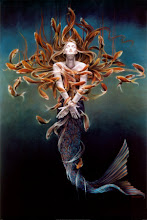“When he woke in the woods in the dark and the cold of the night he'd reach out to touch the child sleeping beside him. Nights dark beyond darkness and the days more gray each one than what had gone before. Like the onset of some cold glaucoma dimming away the world. His hand rose and fell softly with each precious breath.” Thus begins “The Road” by Cormac McCarthy.
This novel is destined to become one of the great American classics. A great novel has to have a story that is timeless, characters that are believable, narrative tension, and, of course, good prose. This book possesses all of these qualities.
What makes "The Road" timeless is that it is a novel about survival, not only of the body, but of the human spirit. Father and son travel through cities, decimated by some unknown calamity and barren of all life. McCarthy describes one such city in his usual minimalist way when he states “The city was mostly burned. No sign of life. Cars in the street caked with ash, everything covered with ash and dust." The father pushes a grocery cart through a ''cauterized terrain'' barren of all animal life. They travel through a post-apocalyptic nightmare world, strewn with corpses, and populated by roving gangs of cannibals, in the hope of finding a better tomorrow. Through every adversity, the two main characters, whose names are never mentioned, manage to hold on to each other, to their hope of finding a better tomorrow, and to their humanity. It is the story of the love between parent and child and deals with the eternal conflict - survival - but at what cost?
The characters are even more believable because they are not named. They could be any parent and child comforting each other on cold and lonely nights. The father struggles with issues every parent struggles with: how to teach his son right from wrong, how to ensure his son’s survival if he dies, and what to tell his son of the nature of evil. The child, like any child, is able to find joy even in this horrible landscape. He plays the flute, and asks his father for bed-time stories. Later in the book, “the boy found some crayons and painted his facemask with fangs”. The father’s job is to protect his child, at any cost. “He knew only that the child was his warrant. He said: If he is not the word of God God never spoke.”
The book is dark and filled with tension. This is what makes it such a page turner and what keeps the reader thinking about it long after it has been put down. It keeps the reader on the edge of their seat, waiting to see how they will survive the next obstacle. In addition, the duo faces the constant external threat of starvation and of succumbing to the elements. They could be attacked by other travelers or roving bands of cannibals at any moment. McCarthy uses flashbacks to show us what could happen to the pair if they are caught by the wrong people. People are raped, beaten, and kept like cattle, as a source of food. The father’s internal struggle is another factor which adds to the overall tension of the book. How far will he go to keep his son alive? Will he kill and steal food from other children? At what point is it better to give up and end their suffering? These questions are always in the background. The father carries with him a gun with two bullets, one for each of them, but is never sure when, or even if, to use it.
The prose in the book is beautiful. The entire book is written like a series of dark and mesmerizing poems. The language is stark and unadorned. There’s no filler, nothing extraneous, as illustrated in this exchange between father and son: “The boy turned in the blankets. Then he opened his eyes. Hi, Papa, he said. I’m right here. I know.” Thus, the writing itself becomes symbolic of the nature of the story. Bleak, desolate, and yet beautifully moving.
This book, although dark, does contain a message of hope. It tells us that we can change our destinies. It tells us that love, can indeed, conquer all. The author gifts us with a timeless story of love and survival. His characters are completely believable and sympathetic. The tension is, at times, almost unbearable. The author‘s prose is sparse and eloquent and beautiful in itself. This book has staying power and will linger with the reader long after the last page has been read. Perhaps the power of a book, to linger with the reader and forever alter him, should be added to the list of criteria by which a book should be measured. This is definitely a book worth reading, not just once, but over and over again.
Tuesday, July 20, 2010
Subscribe to:
Post Comments (Atom)

No comments:
Post a Comment